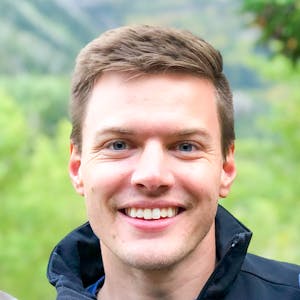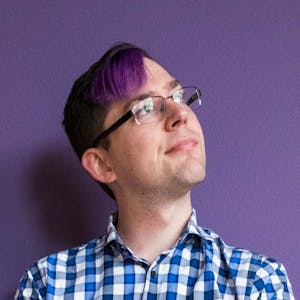1. Transforming Communities with Technology
Hi, everyone. I am Liz Parody, Head of Developers Relations at NodeSearch. Medellin, my city, was the most dangerous in the world. Today, it's the Silicon Valley of Latin America. This transformation was possible through technology, community inclusion, and hard work. Colombia has a large JavaScript community with a significant impact. This talk is about transforming communities in a conflict-ridden nation using technology.
Let's take a look. Hi, everyone. I am Liz Parody. I am Head of Developers Relations at NodeSearch. And I'm an organizer of different tech events, conference, and community leader in Colombia.
Now let me tell you a story. In the last couple of weeks, Colombia has been facing a difficult situation, as you might have probably seen on the news. But that's nothing compared to how it used to be. When I was born, my city Medellin was the most dangerous city in the world. Today, three decades later, it's called the Silicon Valley of Latin America, the most innovative city in the world, and the center of the fourth revolution. This incredible transformation was possible because of technology, community inclusion, and a lot of hard work.
Now, Colombia has one of the largest Spanish-speaking JavaScript communities globally, with a significant impact on the region, massive technology events, and it's still growing. And it's important to discuss community topics because as Mile Pory said, one of the Node.js contributors, APIs are going to be deprecated, but being human will not. So this talk is about the journey of creating those communities, the challenges, lessons, and insights of how to transform a community in a high conflict developing nation using technology and how we can set the stage for other communities to build upon.
To understand the magnitude of transformation of Colombia is necessary to go back in time three decades ago, the time that I was born. Medellin was considered the most dangerous city on earth in the 80s and 90s. Many of you might have probably seen NARCO's tank Netflix for perpetuating the NARCO image of Colombia internationally. And even though most Colombians and I hate this series, it shows part of our history that will always be remembered. A dark time full of violence, NARCO's, drugs, deaths, terrorism, and a lot of fear. Usually when we mention Colombia to the rest of the world they think about drugs and NARCO's and that's because they don't know what's really happening in the country. They cannot see the bigger picture of what Colombia really is and because stereotypes are easier. Yes, 30 years ago Colombia was terrifying. There are some statistics of the conflict of the country from 1985 to 2010. There were more than 5 million force displacements, more than 27,000 kidnappings, 95 terrorist attacks and a big part of these statistics happen in Medellin. Medellin was the epicenter of the conflict. I won't show images of going deep into this because it's too sad but this gives you an idea of how bad it was. Just saying that it was the most dangerous place in the world would put you into context. One might think how can a city or even a country ever recover from that? Or even more important, how is this related to Node.js or JavaScript or even technology in general? Well, this is where the power of technology and communities plays a big part. Technology was responsible for the transformation of Medellin. Many factors helped the city overcome that, including urbanism, architecture, accessibility, public transportations and technology, mainly software.
2. The Colombian Tech Community Revolution
In 2011, six individuals created the Bogota.conf conference, which led to the establishment of the first technology meetup in Colombia. The first JSConf Colombia in 2013 marked the beginning of a revolution, resulting in exponential growth of technology and communities. Other cities joined the movement, and new meetups and conferences were organized. ColombiaDev was formed to bring together all the meetups and conferences, focusing on inclusion, diversity, and social impact. Today, there are 95 meetups across the country, with over 100,000 attendees regularly participating. The Spanish-speaking tech community in Colombia is now one of the largest in the world.
And this is where I will focus my talk. In 2011, there were no technologies communities in Colombia. No conference, no events, nothing related to technology, until six individuals decided to create a community and a conference. And Bogota.conf was created, a conference in the capital of the country to talk about software.
There were a few hundred attendees and it was a successful conference. The conference led to the first technology meetup in the country, Bogota.js. In 2012, another community leader, after seeing what was happening in Bogota, decided to start managing JS, the first technology and JavaScript meetup in the city. In 2013, the team decided to create the first JSConf Colombia and that's where the revolution started.
After this, the growth of technology and communities became exponential. Around 400 people attended and there were many great speakers, networking, amazing energy, and initiatives to create impact. After JSConf, leaders in other cities wanted to be part of this revolution, and other meetups were created, including Kali.js. Then other small cities started to join, like Pereira, Boca de Manga, Manizales, Quibdó, Montería, Valle de Dupar, Popoyán, and Barranquilla.
But it doesn't stop there. In 2015, some JavaScript leaders thought to the Ruby community to create a conference focused on Ruby and RubyConf was created. We are a big group of people collaborating, networking, sharing, teaching, and learning from each other. ColombiaDev was created as the entity that groups together all the meetups and conferences, following the Code of Conduct, always talking to account inclusion and diversity, and generating social impact by making knowledge accessible to as many Colombians and Latinos as possible.
Now, and a few years after the revolution started, there are 95 meetups across the country in 16 different cities. There are more than 100,000 people attending to these meetups regularly. There is more than 100,000 lives impacted by technology and communities, including me. And many people have accomplished great things, found new jobs, found new friends, and improved their careers. Adding to the list of conferences in the last couple of years was created Skel comp, Py comp, J comp, Node comp, Reactla comp, CSS Comp, Git comp, Voya comp, Vuevixen, and others. What happened in Medellin is magical. Most of these conferences are happening in the city. While it started with six leaders, now there are hundreds of leaders organizing all these meetups and conferences all over the country. Now we have one of the largest Spanish-speaking tech community in the world. We have Viva platform. Today, Colombia community is recognized worldwide. This is how JS comp looks like. We also have news like this. Forget your preconceptions.
3. Building Successful Communities in Colombia
Colombia has transformed into a model of urban transformation and social resilience. Medellín, once a city with a negative reputation, is now recognized as the most innovative city by the BBC. The country has also received significant startup investments and has established principles for building successful communities. By prioritizing inclusion, diversity, and accessibility, and by providing scholarships and creating safe spaces, diverse and welcoming communities can be formed. Building communities may require starting small, but the impact can be significant, changing perceptions and creating a better future for all.
Colombia has changed for the better from the telegraph. Medellín Colombia, a miracle of reinvention. How is Medellín a model of urban transformation and social resilience by the World Bank. Colombia's Medellín is named most innovative city by the BBC. And some looking news talking about the fourth revolution happening in Medellín. Believe me, three years ago the news about Colombia were completely different.
Colombia also received one of the highest startup investments in the world with $1 billion in 2019. There are some principles that need to be taken into account to build a successful community. I will go deep into this because of the lack of time, but the principles are a cut off contract and have a mechanism to enforce it. Treat your speakers well because they will become your ambassadors. Make inclusion, accessibility and diversity a priority. Give those scholarships and create a safe space for everyone because diverse communities are better communities and everybody should feel welcome in your event. Take first steps to build communities even if you don't have the infrastructure and money, get the resources and be responsible with money. Make sure you can afford your event community and that way you can legitimize your event and build trust. Leadership start with a small and committed team. Once your event community is sustainable you can add more people. It's a volunteer job, it's a time of work and it won't bring you money and it's mostly unrecognized, but it's worth it. Create input in the country. With the events and community that we created hundreds of people have traveled to Colombia for the first time just for that and when they leave hopefully they have learned something new and the perception of Colombia has changed. And finally you can get involved by going, speaking and supporting conferences and meetups in developing countries, creating local communities or meetups and helping others to learn and be successful programmers.
What happened in Colombia was what we could call the butterfly effect. Some community leaders impacted lives of hundreds of thousands. It's in our hands to create the reality we want to experience. Let's build a better future for all.



















Comments